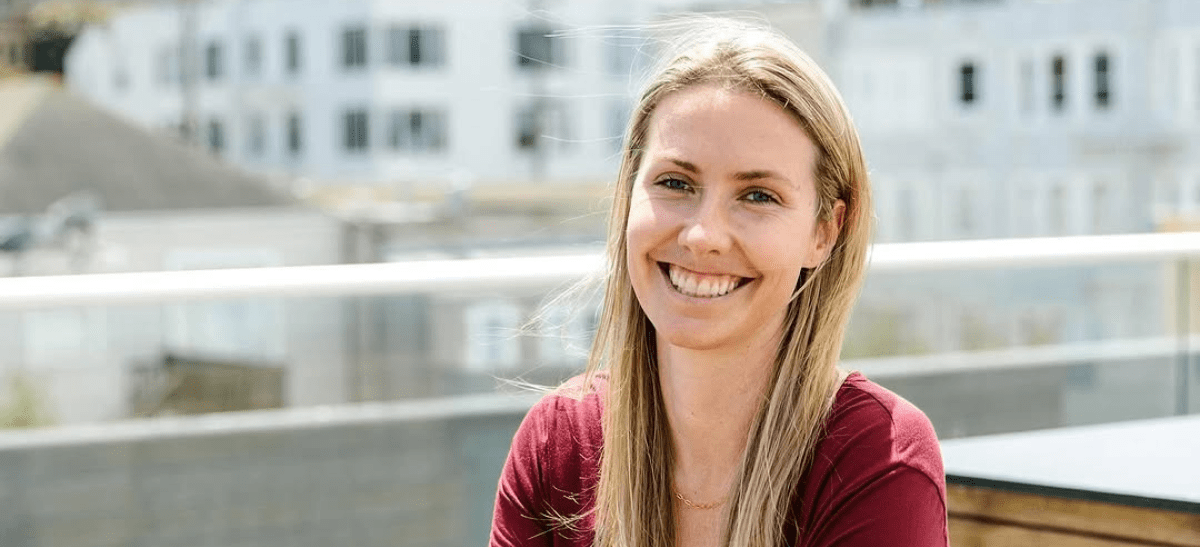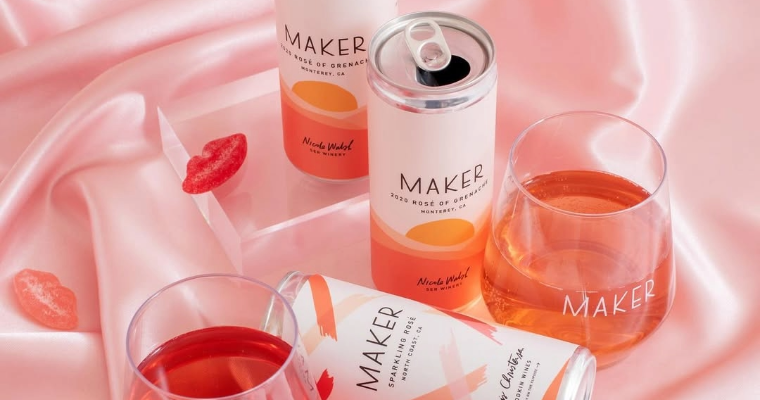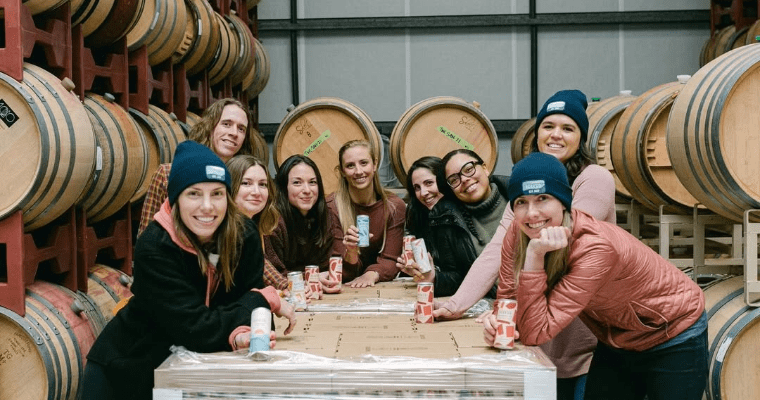Final
Deadline
April 16, 2026
Judging
Date
May 18, 2026
Winners
Announced
June 10, 2026

Sarah Hoffman, CEO and co-founder of Maker Wine, is redefining the wine industry with a mission to make premium wine accessible and sustainable. Partnering with independent winemakers, Maker offers dry, terroir-driven wines in eco-friendly cans, challenging the stigma around canned wine. With top accolades from major wine competitions and a commitment to sustainability, Maker showcases lesser-known varietals and small producers. In this interview with the Sommeliers Choice Awards, Hoffman shares insights on overcoming challenges, connecting with new audiences, and the company’s future vision in the growing canned wine market.
Making the wine world more accessible has been our mission since Maker’s inception. We partner with diverse, independent winemakers to select dry wines that are sustainably farmed and produced. We then put those award-winning wines (that they also bottle!) into sleek aluminum cans. To bring things full circle, we ship wines and each winemaker’s authentic story directly to customers.
Since the beginning, we have entered our canned wines into top bottled wine competitions to combat “can bias.” Tasted blind against bottles, our wines are winning Golds and Double Golds in major competitions like the Sommeliers Choice Awards, SF Chronicle Int’l Competition, and the Press Democrat North Coast Wine Challenge. These accolades have helped those new to canned wine give us a try!
We also have other markers of quality from traditional wine bottles on the can, including the vintage, varietal, signature of the winemaker, and even a QR code to help consumers learn more about each can. By leading with both vintage and varietal, we know the more wine-savvy consumers will appreciate that there are terroir-driven wines with years of TLC inside.

Image: Maker’s Canned Wines
We love finding lesser-known regions and grapes that geeky wine people adore, but that your average rosé sipper may not know. We also love to educate around unique wines and winemaking practices—for example, our single-vineyard, old-vine Cabernet Pfeffer sourced from Wirz Vineyard in the Cienega Valley or our Carbonic Sangiovese by Terah Wine Co. from Lodi. This year, we even introduced a Bubbly Red also by Ser Winery that’s 100% Cinsault and a Spanish White Blend by new partner, Miguel Lepe, that’s Albariño, Verdelho, and Grenache Blanc.
We’ve become known especially for premium reds—we’ve been highlighted as the top-rated red wine in a can by Wine Spectator with our gold-medal-winning Pinot Noir by Handley Cellars. All our wines—red, white, rosé, and bubbly—are dry and terroir-driven, representing a unique time and place. We also try to highlight a craft producer’s signature wine that represents their region and style.
Also read: Exploring the Richness of Tempranillo: Spain’s Gift to the Wine World
We started by profiling unique regions whose wines we wanted to highlight, for example, Pinot Noir from Anderson Valley or Cabernet Sauvignon from Yakima Valley. We interviewed dozens of winemakers and tried hundreds of samples to settle on our first three wines! For winemakers to become Maker producers, they have to have excellent wines that represent the region and interesting stories or styles to share. Since bringing on our first few winemakers, our newer winemaker partners have often come in through referrals from our Maker network.
We also lean on our customers (the Can Fam!) and our winemakers to help inform which varietals become part of our portfolio. Last year, our top requested wine was a sparkling red, which we brought to our winemaker collective. Nicole Walsh at Ser Winery was excited about Cinsault, and voila—our first bubbly red was born.
Our small team accomplished something major this year—our first-ever airline placement! We were super proud of the team for coming together to successfully close this deal and ramp up production to meet demand on a super tight timeline.
There were so many moving parts and crazy logistics, but we somehow made this dream a reality thanks to winemaker Nicole Walsh at Ser, our team, and some amazing canning partners. We can’t believe our cans are really flying at 30,000 ft.

Image: Maker Wine’s Team
We are in close contact with our winemakers during the growing season, harvest, and production to know as much about their wines as possible. Before every launch, we spend time chatting with each winemaker to better understand their journey to wine, winemaking philosophies, and how they see their wines being enjoyed. Those stories are published on our website and accessible via QR code on every can. We find that this is a great way to connect the consumer to the people who dreamed up the wines in their cans.
Sustainability has been important to us and our winemakers and was part of the inspiration for Maker. We have an internal sustainability statement that guides our decision-making. Our farm-to-can supply chain means we partner with domestic wineries and can from their vineyards; we don’t purchase and truck wine on the bulk market long distances or from abroad, limiting our carbon footprint.
Little-known fact: Glass bottles are the largest contributors to wine’s carbon footprint. We use “digitally printed” cans that are fully recyclable and do not require any incineration of the adhesive or label. Finally, we care just as much about sustainable farming practices as we do the recyclable packaging. Free of harmful chemicals and additives, Maker Wines are dry (less than 1 g sugar per can), vegan, and made with certified sustainable and organically farmed fruit.
Also: Eco-Friendly Wine: A Vital Category For Current-Future Sales
[[relatedPurchasesItems-61]]
While growth in the industry overall is slowing, cans are a shiny exception—cans are the fastest-growing format in wine. In fact, according to the Future Market Insights Report (2023), canned wine sales are projected to triple by 2023 and US canned wine sales are projected to grow at a 17% CAGR (compound annual growth) through 2030 vs. 5% CAGR for the entire industry.
Bringing it back to the problem we set out to solve, wine isn’t speaking to young people today; drinkers ages 21 to 34 only represent 15% of bottled wine buyers but represent 26% of canned wine buyers. We’re excited to continue to bring new drinkers and audiences into wine.
Our main advice is: Do it! When we were starting out, many in the industry discouraged us or told us why our idea wouldn’t work. When young female entrepreneurs reach out to us about wanting to enter the space, we want to encourage them to build something in wine—new perspectives and ideas are exactly what the industry needs! Another important piece of advice: Find the right mentors and partners. Connecting with more experienced founders really helped us get the business off the ground—there are so many idiosyncrasies and earned secrets in wine and collaboration is how we will all succeed.
Header image sourced from Maker Wine’s Instagram
Related Links
Condado Portucalense: A Legacy of Innovation and Excellence in the Lisbon Wine Region
Why Buyers Choose Sustainable Wines: Insights from Michael Hoefling on Growing Demand
Enter your Wines now and get in front of top Sommeliers, Wine Directors, and On-Premise Wine Buyers of USA.
